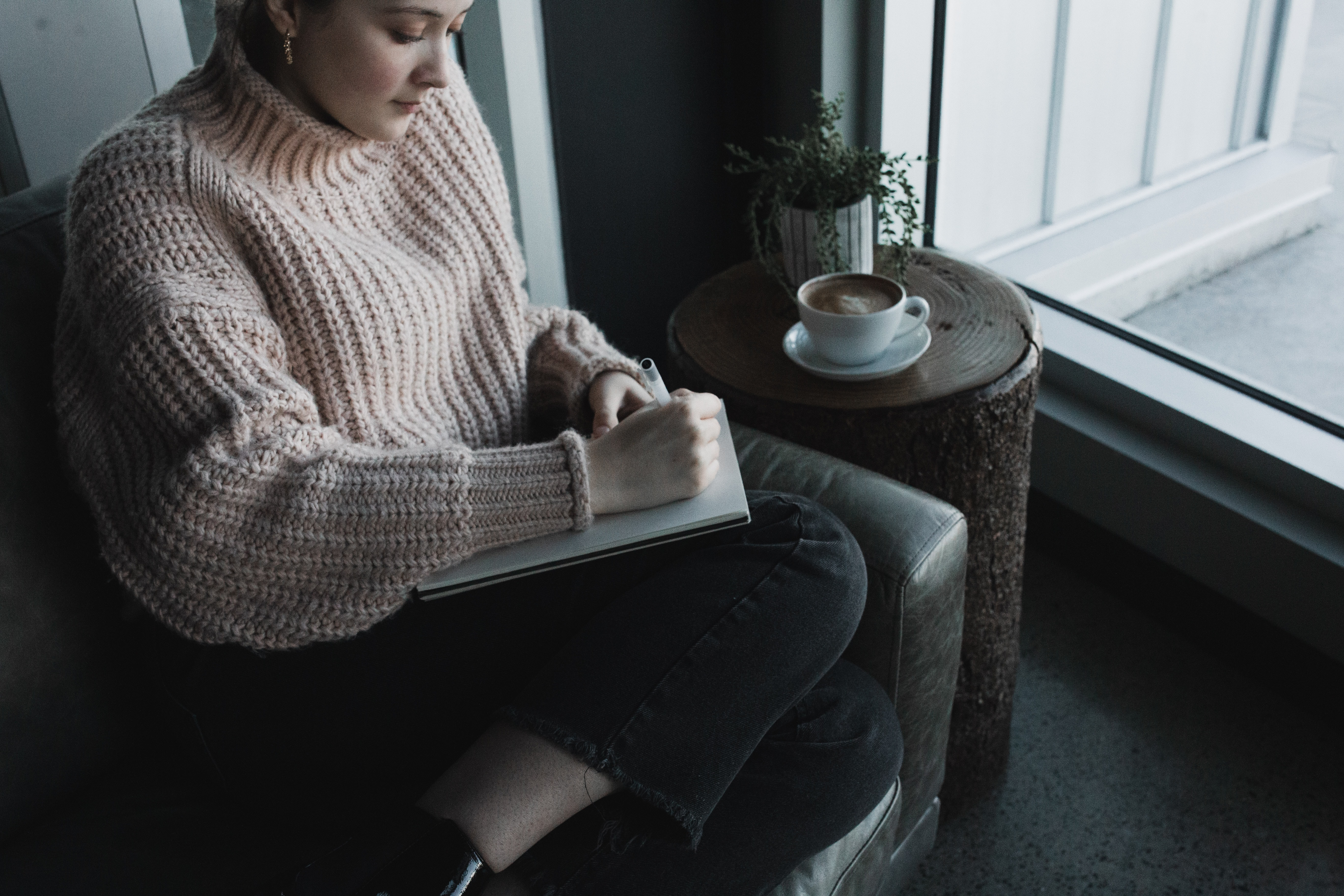The practice of journaling — where a person writes and records their thoughts and ideas in a journal or diary — is one of the simplest ways we can make a huge difference in our everyday lives.
Journaling has been scientifically proven to act as writing therapy for our physical and mental health. Studies have shown that daily journaling can boost our mindfulness and memory. This gentle habit can also help us sleep better, build self-confidence, and equip us to better manage anxiety and reduce stress.
Do you know what else can happen when we are able to journal daily? I spoke with three women about their daily journaling practices to learn more about how the practice unlocks their inner creative and allows for deeper self-discovery.
“I connect with my true self when journaling.”
Ariel Upton describes herself as a lifelong journaler. She is the CEO and Co-Creator of TODAY I DID IT RIGHT, an approach designed to help individuals live the right life on a daily basis.
Upton journals every day. Some days she writes for pages on end. Others, she might simply pen a word or two.
Those days count as part of the journaling practice, by the way. She compares daily journaling to physical workouts. Doing a little bit each day allows journalers to create a consistent practice.
“The practice allows me to take all of my thoughts, ideas, and feelings that swirl around in my head and put them on paper where I can really process,” Upton says.
Putting words to paper is where the journaling magic begins. It is here that Upton is able to begin expressing her thoughts. From here on out, she is able to start digging and discover what is beyond the surface.
“When I journal, I can dig a layer deeper and get to the heart of what I’m exploring,” Upton says. “Journaling is this incredible portal and communication tool to connecting with my true self — who I really am.”
“Journaling creates positive habitual acts.”
Every morning, Bianca Kamhi journals for five to 10 minutes after she wakes up. She jots down what she would like to achieve, how she wants to behave, and what she hopes to gain throughout the day. Kamhi is an accountability coach who loves that the practice of journaling holds us accountable to our thoughts and goals.
While it is true that not every day goes according to plan, Kamhi says that journaling enables us to set the right tone to be productive and positive.
It also allows journalers to better create positive habitual acts.
“Journaling helps me realize what patterns work best for my daily productivity.” Kamhi explains. “No thought or idea is too big or too small to be written in your journal. It is there to serve all your expanding thoughts.”
Making this discovery allows Kamhi to prioritize goals for her life and to provide herself with daily affirmations to build up her confidence. She is able to be herself — authentically and wholeheartedly — when writing in her journal.
“The heart needs to journal.”
Success coach Chrissy Papetti journals every day. Her journaling practice is marches to its own unique beat, ranging from free writing to intuitive poetry. Journaling allows Papetti to create a necessary pause in her daily life. In journaling, she is able to dedicate time to herself — and to her heart.
The heart, as Papetti explains, is sometimes referred to as the most selfish organ in the body. This is because it keeps the best, most oxygenated blood for itself and distributes the rest to the other organs. However, if our hearts did not do this they would fail. The failure of the heart would cause every other organ in our body to fail along with it.
What happens if we are unable to express who we are? Papetti warns that we could be at risk of disconnecting from ourselves. This may also cause a ripple effect that impacts those who matter to us.
“We, the heart, need to prioritize a practice like journaling,” Papetti says. “This gives us time to express ourselves, reflect, and keep ourselves thriving.”
How do I start journaling?
Starting a journal can seem intimidating if you have never tried it before! The secret is there is no “wrong way” to begin journaling. You can begin in full pages, with single words, or by following any of these additional tips below.
- Start short. This is Kamhi’s advice for beginners approaching journaling. Set aside a few minutes each day to journal. Focus on journaling about one specific topic. Not sure which topic to pick? Kamhi says to try a thought-release, goal-oriented journaling, or a gratitude session.
- Go slow. As Upton says, you don’t start running and expect to run a marathon the next day. Take your time. If you need inspiration, follow guided prompts.
- Release expectations. Papetti advises letting your intuition guide you while journaling. Listen to your inner voice and follow its lead. You’ll be able to source your creativity from a deeper place and discover endless amounts of possibility.


